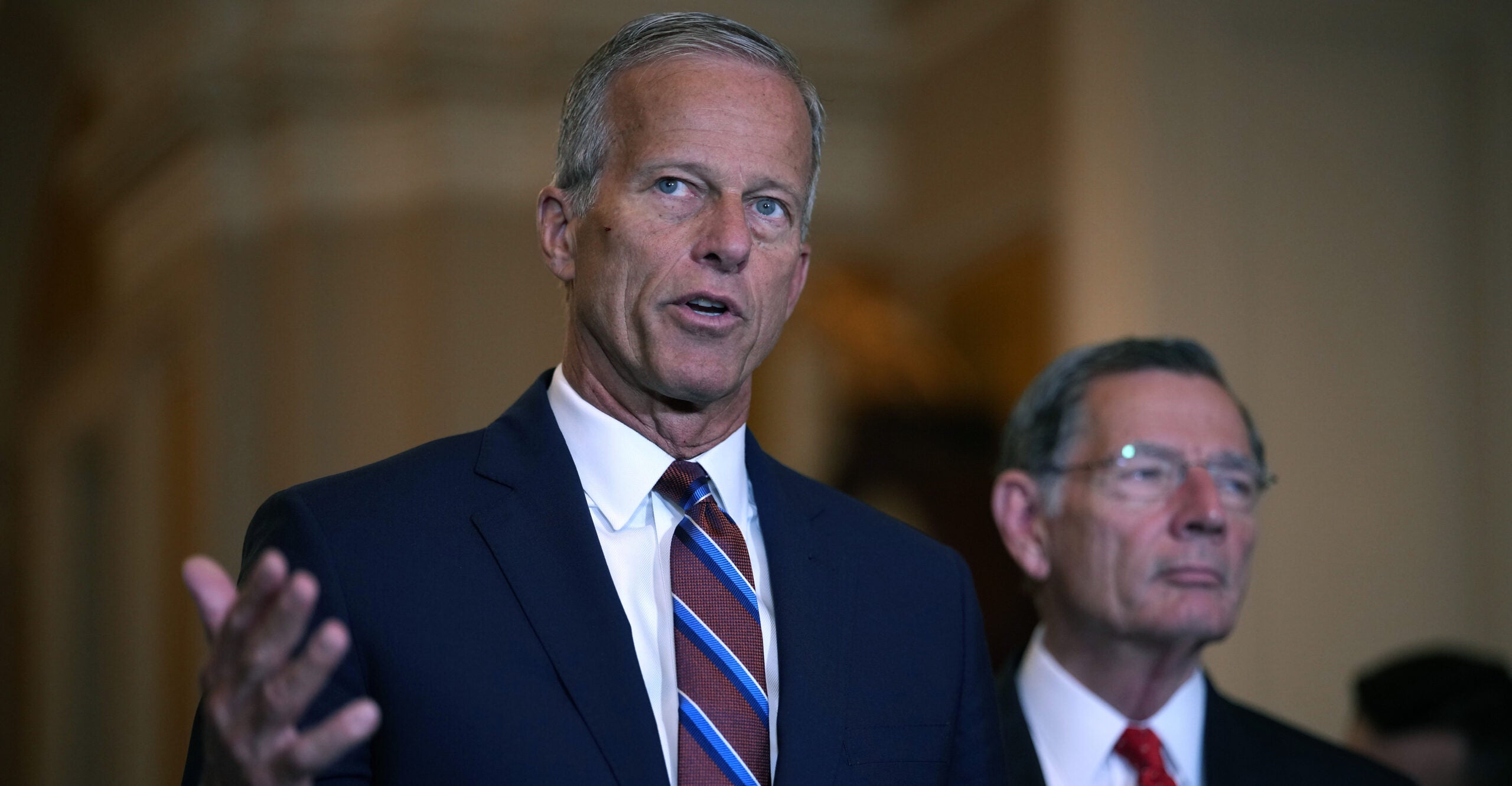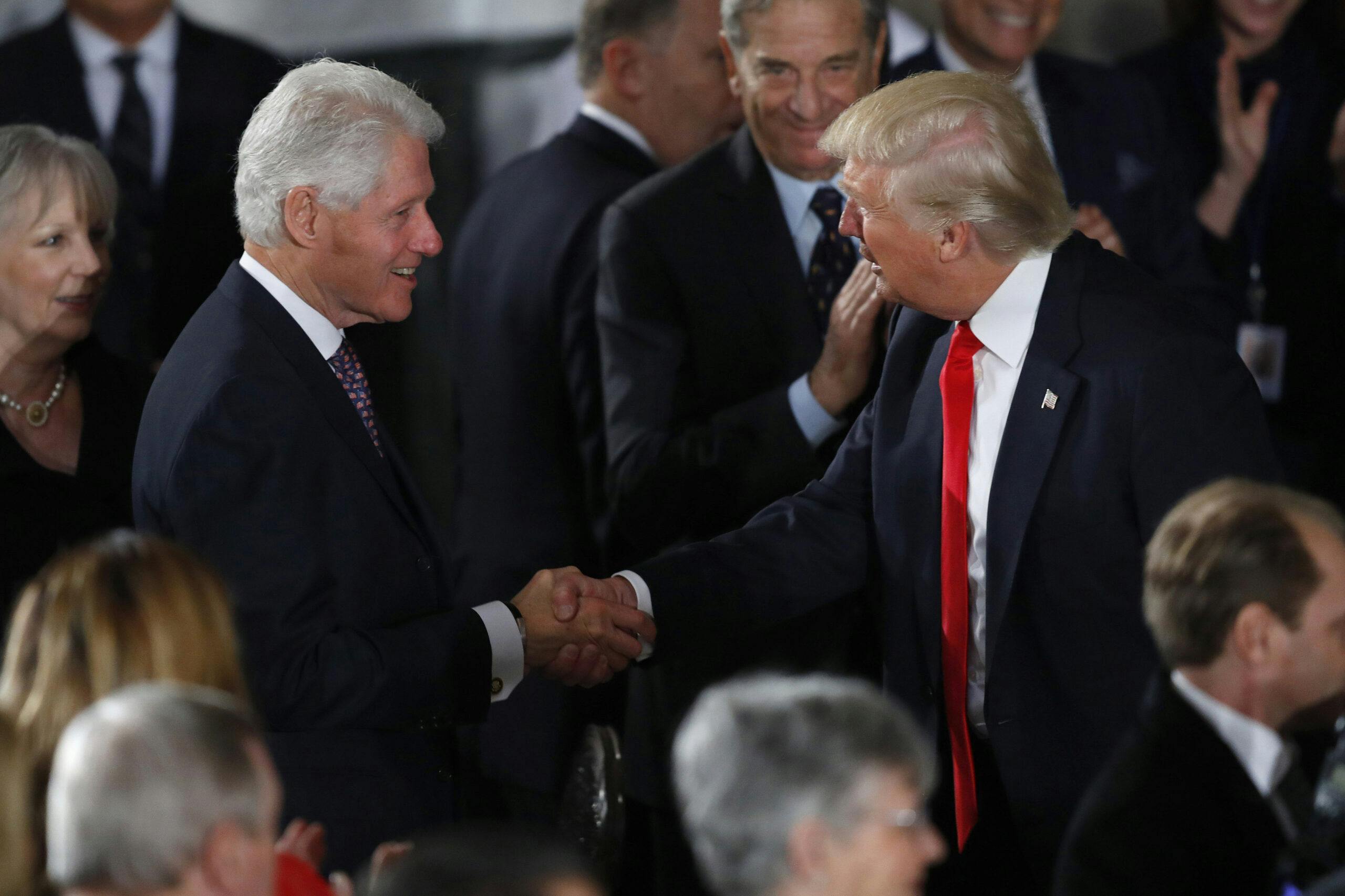Senate Republicans Took the Easy Way Out

Why are unprecedented successes in the Senate reserved for Senate Democrats?
Live Your Best Retirement
Fun • Funds • Fitness • Freedom
For eight months, Senate Democrats successfully obstructed dozens upon dozens of President Donald Trump’s political nominees. Senate Republicans let them do it.
The Democrat obstruction will now likely come to an end because the Senate deployed the “nuclear option” on Thursday afternoon. By a vote of 53-to-45, the Senate voted in favor of developing a new precedent that will allow the body to confirm presidential nominees in batches, rather than one by one. But this precedent is less a consequence of Democrat obstruction than it is a result of Republican laziness.
No doubt, Democrat interference has been unprecedented. Though the Washington Post’s confirmation tracker puts Trump’s second term on pace with Biden administration confirmations, that does not tell the entire story.
The most limited resource in politics is not money or manpower—it is time. That is especially true in the Senate, which has an average work week of Tuesdays through Thursdays. And its rules are designed to slow down items moving through the upper chamber and allow for debate.
The Senate often boasts it is the greatest deliberative body in the world because, in theory, debate is unlimited prior to cloture bringing that debate to a close.
Before the Senate brings debate to an end, a cloture motion must be filed, which is almost always brought by the majority leader, and signed by at least 16 senators. That motion then has to “ripen” over a two-day period. Once ripened, the Senate votes on whether or not it will end debate, which normally requires 60 votes.
Even after the Senate has voted to bring debate to an end, however, there are still hours devoted to debate on the Senate floor, ranging from two hours to 30 hours depending on the item. For example, the Senate allows for two hours of debate following a successful cloture vote on a sub-Cabinet nominee, while it allows for 30 hours of debate for most legislation.
How, then, does the Senate speed things up? Through unanimous consent of the senators. In Trump’s second term, Democrats have refused to confirm a single civilian nominee by unanimous consent or a voice vote. In Trump’s first term, 65% of these nominees were confirmed in this manner, according to the Washington Reporter. During President Joe Biden’s term, it was 57%.
It is worth noting, however, that the Senate is by no means obligated to advance calendar items by unanimous consent. Over 99% of Trump’s confirmed civilian nominees have had to go through cloture votes. When a one-minute voice vote is compared to the cloture process, one can only imagine the amount of time this has wasted in the last 8 months. Add on top of that not only the backlog of nominees but the backlog of their urgent responsibilities, and the cumulative effect becomes all the more apparent.
It was necessary for Senate Republicans to break the blockade. They could have done it sooner.
Senate Republicans should have waged a war of exhaustion. They got wise to this in the weeks before the August recess, confirming about a third of this year’s confirmations in the three weeks before August recess. And then they left Washington for a month. They could have decided not to recess for the month of August. They could have worked on Fridays or on weekends (like they originally promised).
As Rachel Bovard, vice president at the Conservative Partnership institute and longtime Senate veteran, posted on X, “The irony is that the post cloture time on this resolution to confirm a batch of 2 hour noms is 30 hours. They could have confirmed 15 noms in the time they’re now going to take running the post cloture time on the [resolution] to break their own rules.”
As soon as Democrats showed they were serious about obstruction in January and February, the Senate floor should have been held hostage, with Republicans pushing through cloture and confirmation votes until unanimous consent became Democrats’ only reprieve. If that did not break the Democrats’ will, then the nuclear option should have been put on the table, and the button should have been pressed by late March.
Senate Republicans should have given Trump his team as soon as possible, come hell or high water.
Furthermore, if causing a hindrance of this magnitude was possible with the Senate rules currently on the books, why is it that Democrats did it first and not Republicans? Following the chicanery of the 2020 election, the clear and increasing signs that Biden was not actually wielding the power of the presidency, and the open radicalism of Biden administration appointees, Republicans had every reason to stymie the confirmation of the prior administration’s political appointees to the furthest extent possible.
Senate Republicans should have created the political conditions to force the Democrats to go nuclear long ago.
It seems Senate Republicans have broken the blockade. But they’ve done so in such a way that leaves their flank exposed, and the only reason it’s exposed is that they did not fight hard enough to protect it.
The post Senate Republicans Took the Easy Way Out appeared first on The Daily Signal.
Originally Published at Daily Wire, Daily Signal, or The Blaze
What's Your Reaction?
 Like
0
Like
0
 Dislike
0
Dislike
0
 Love
0
Love
0
 Funny
0
Funny
0
 Angry
0
Angry
0
 Sad
0
Sad
0
 Wow
0
Wow
0














































































